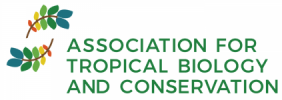Organized by UNESCO in collaboration with various partners, the international conference ‘Botanists of the twenty-first century: roles, challenges and opportunities’, will be held at UNESCO Headquarters, Paris, in Room IV, from 22 to 25 September 2014.
Without plants, Earth would be a planet without life
Since its emergence 3.8 billion years ago with the first aquatic chlorophyllous organisms, photosynthesis has become a vital process making possible the spread of life across the planet. For thousands of years, plants have colonized aquatic and terrestrial environments, continuously adapting to the natural dynamics of their environment. They created the conditions that led to the emergence and maintenance of animal life, and form the very basis of terrestrial ecosystems.
Plants provide various ecosystemic services essential to humanity. Plant science, long supported by medicine, because of the medicinal, even magical, properties of plants, began to grow in the fifteenth century. Botany as a separate science was reinforced by the expeditions of the sixteenth century with its flourishing trade. In the twentieth century, botany diversified into increasingly specialized disciplines ranging from physiology to plant ecology, genetics and phytosociology. A multifaceted science, the practice of botany has been transformed in recent decades by technological advances and the expansion of disciplines.
The twentieth century has witnessed the disappearance of natural ecosystems, loss of biodiversity at the global level and loss of traditional knowledge, all of which threaten the very foundations of this science. At the beginning of the twenty-first century botany is undergoing profound changes. Botanists are facing a changing world. They must apply their knowledge and expertise to meet the actual needs of societies; address new economic, social and environmental challenges; and contribute to the preservation of biodiversity.




